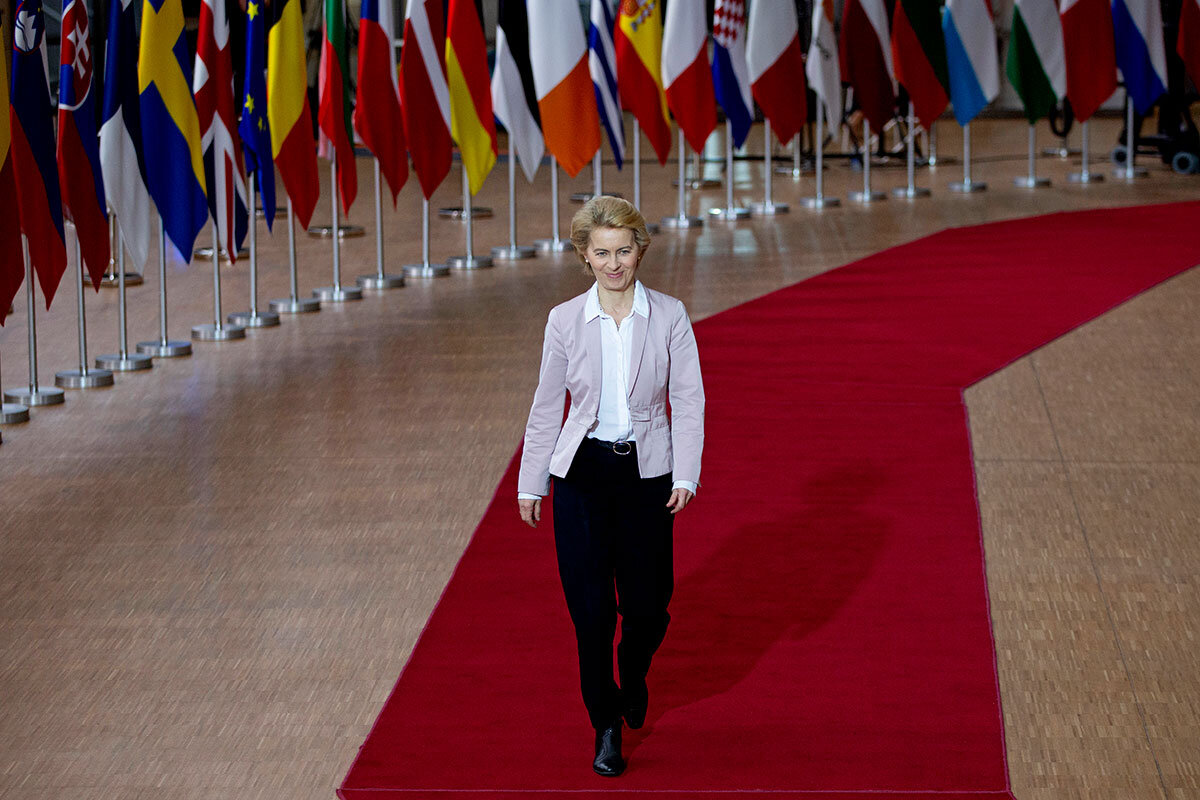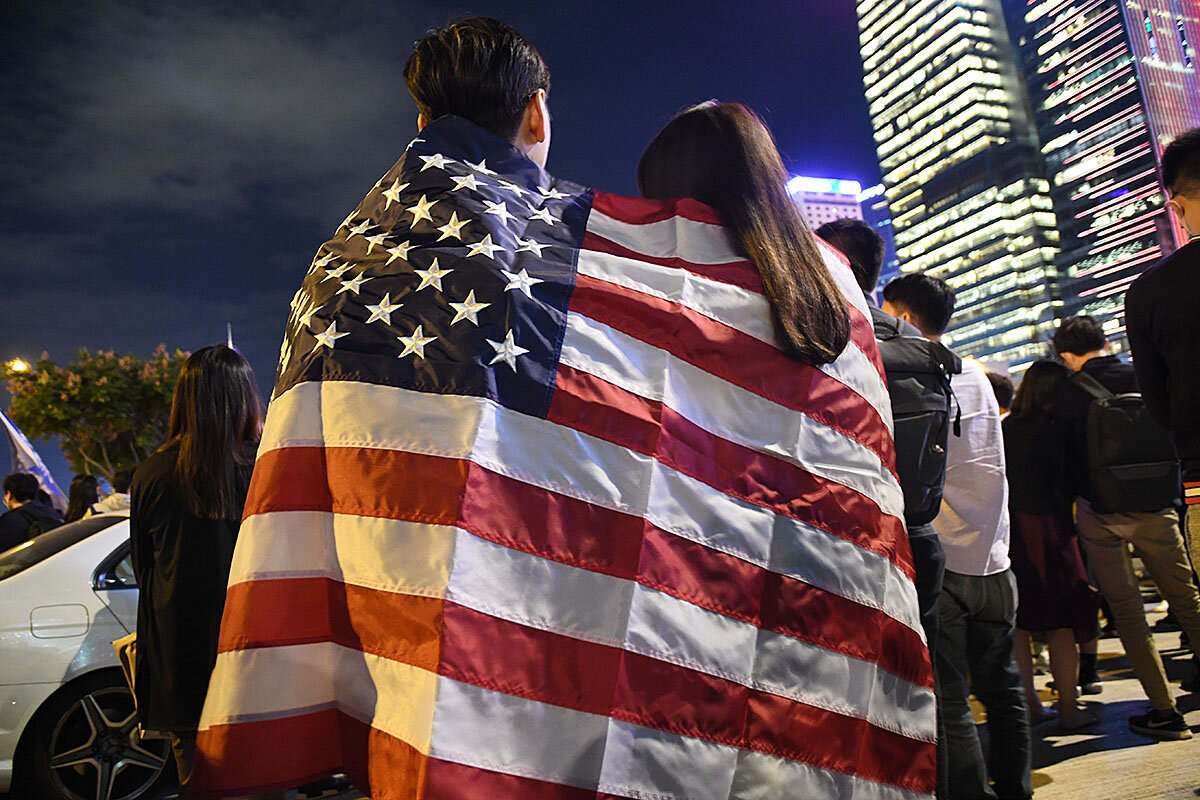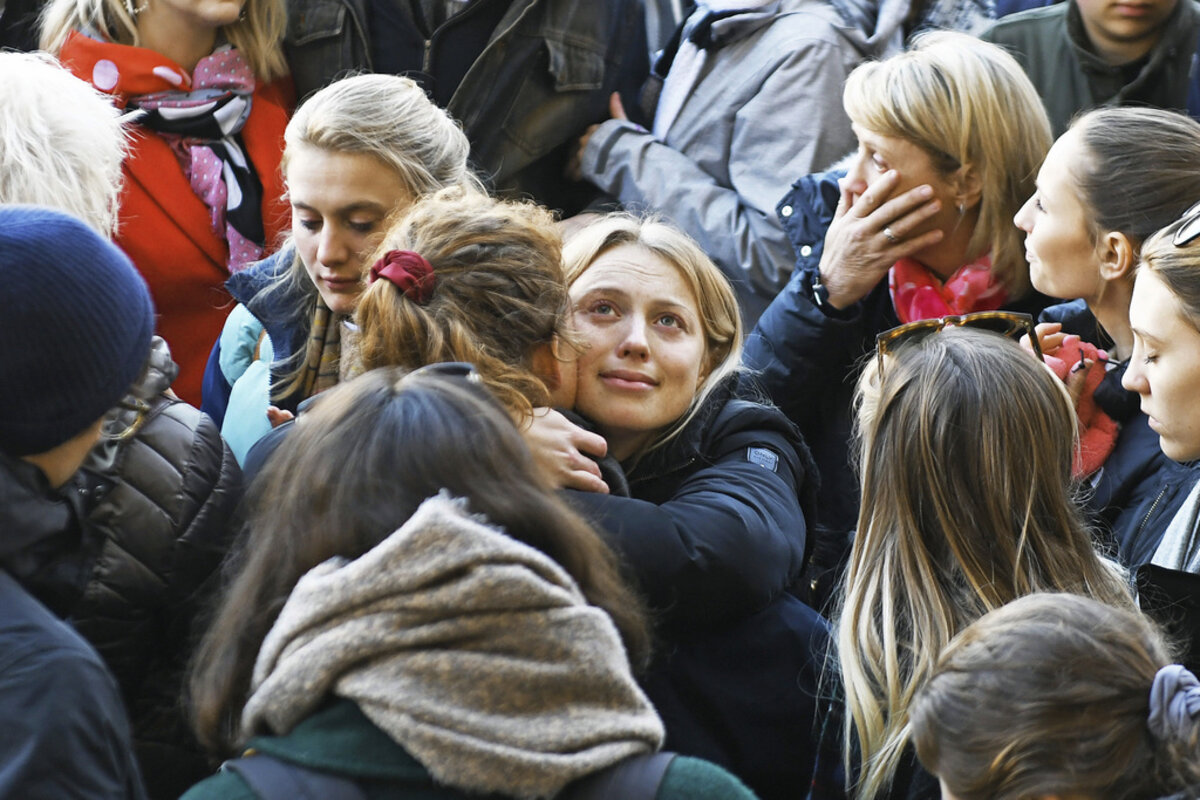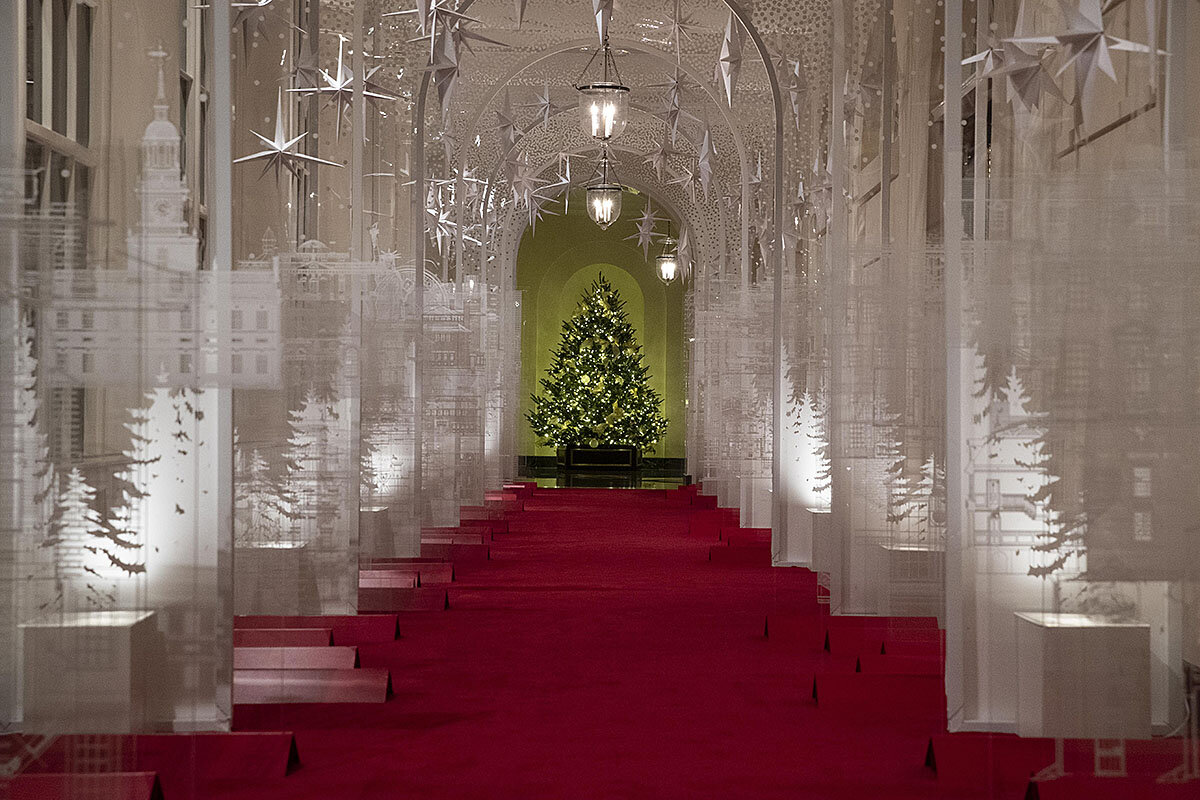We asked readers to send in questions about impeachment. Elliot Kim from Fullerton, California, hit on something that’s top of mind for many: “What does this actually change?” Our Washington bureau chief, Congress reporter, and senior Washington writer explain.
Monitor Daily Podcast
- Follow us:
- Apple Podcasts
- Spotify
- RSS Feed
- Download
 Noelle Swan
Noelle Swan
Today’s stories include the next phase of impeachment hearings, the first woman to lead the European Commission, efforts to foster discussion among political opponents, why Hong Kong protesters are feeling grateful for President Trump, and cookbooks as cultural windows.
But first, world leaders are settling into Madrid today for 12 days of climate negotiations. Each nation brings to the table its own perspectives, values, and needs. But for the 197 signatories of the landmark Paris climate agreement the global nature of climate change demands a unified response.
This 25th United Nations climate summit is undergirded by a mounting sense of urgency. Last week Europe’s Parliament declared a “climate emergency,” just days after a U.N. report cautioned that our current course could lead to a world where average temperatures surpass preindustrial levels by more than 3 degrees Celsius. The Paris accord aims to hold warming to 1.5 degrees.
While delegates negotiate over the next two weeks, we will be exploring the role of the individual in tackling this global challenge.
When we asked readers this fall how they think about climate change, we received dozens of responses from people who see themselves as part of the solution. Cynthia Kuest of DeLand, Florida, writes that she vowed to drive less after reading about changes in Alaska’s permafrost in a Monitor cover story. She sold her car in August and outfitted her bike for messy weather.
“One benefit I discovered by riding my bicycle,” she says, “is that I am connecting more with people in my community.”
We will delve into some of your ideas and share how staffers are thinking about climate in their daily lives.










